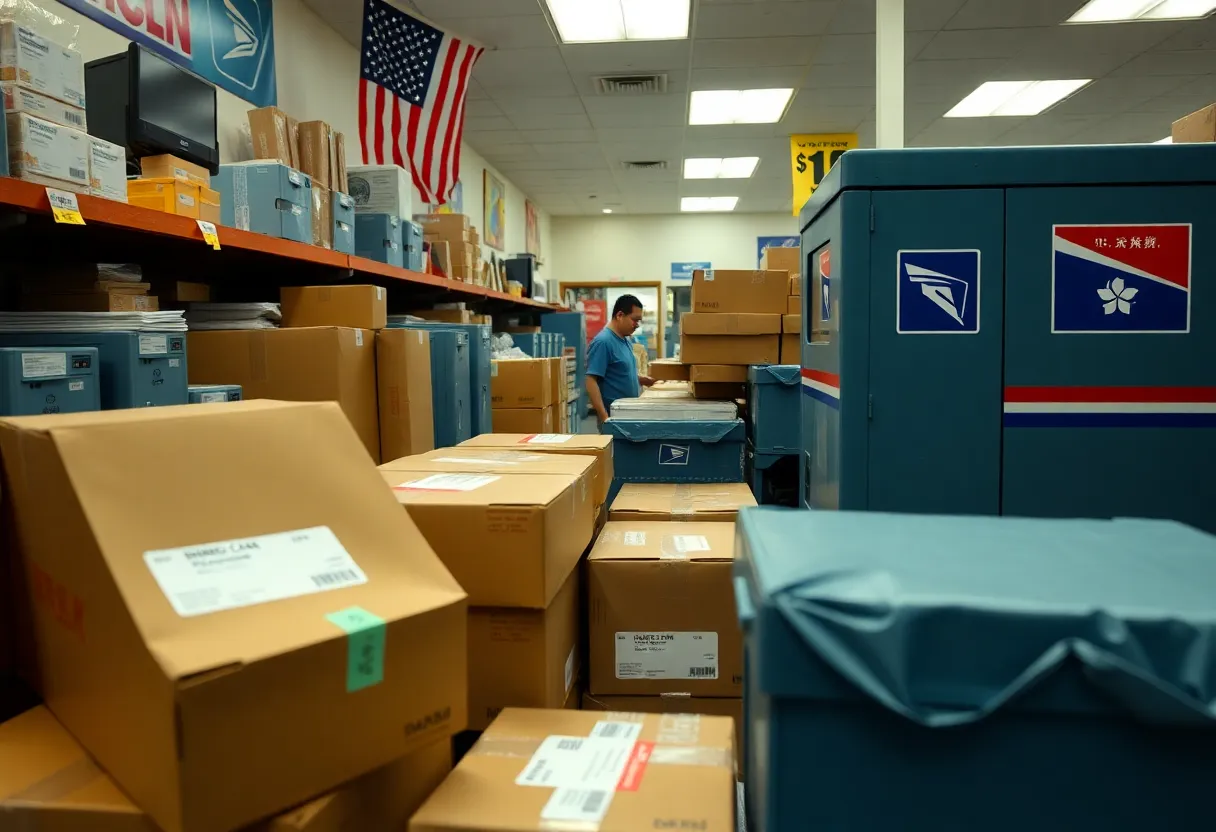News Summary
The United States Postal Service has temporarily halted the acceptance of all incoming international parcels from China and Hong Kong, effective immediately. This decision follows recent changes in trade policy, including the elimination of the ‘de minimis’ exemption for low-value packages. The suspension has raised concerns about rising costs for consumers and increased scrutiny of international shipments. With the USPS handling a significant portion of cross-border deliveries, this move could have lasting implications for e-commerce as the U.S. and China navigate a changing trade environment.
USPS Hits Pause on International Parcels from China and Hong Kong
In a surprising twist for e-commerce, the United States Postal Service (USPS) has decided to temporarily pause the acceptance of all incoming international parcels from China and Hong Kong. The news is effective immediately and will stick around “until further notice.” But don’t worry, letters and large envelopes won’t be impacted by this decision.
What’s Behind the Suspension?
While the USPS hasn’t given us a reason for this big change, it certainly follows some pretty significant moves in the world of international trade. Just hours before the suspension was announced, President Donald Trump signed an executive order that nixed the “de minimis” exemption for packages valued at less than $800. This exemption allowed lots of low-value shipments to come into the U.S. without any duties or inspections, making it a favorite for many e-commerce giants.
Tariffs and Tensions Rising
The situation escalated further with a new 10% tariff being placed on some Chinese imports, coinciding with the USPS suspension announcement. Fingers are pointing at major e-commerce players like Shein and Temu, whose business models heavily leverage the de minimis exemption. Around 1.3 billion de minimis shipments made their way into the U.S. in 2024, and a whopping 30% of those are said to be from Shein and Temu.
A Ripple Effect on E-commerce
Nearly half of all parcels that took advantage of the de minimis exemption are shipped from China. Due to this latest move, many are now left wondering how it will impact prices and the availability of goods. Experts believe that the overall delivery of international packages might face a slow down, as all incoming shipments may be subject to thorough inspections.
Implications for Sellers and Consumers
The suspension could mean rising costs for sellers, which could, in turn, trickle down to you, the U.S. consumer. Brace yourselves for potential price hikes as these companies scramble to adapt to the new landscape.
Criticism and Controversy
This isn’t the first time lawmakers have raised eyebrows at de minimis imports. Many have criticized them for giving Chinese businesses an unfair edge and even supporting the illicit drug trade. However, Shein and Temu maintain that they don’t depend entirely on the de minimis provision, claiming they have established distribution centers right here in the U.S.
The Shift in Strategy
This year has seen a significant growth in U.S. warehousing for Chinese e-commerce companies aiming to dodge potential trade restrictions. It appears that businesses are planning ahead in anticipation of tighter trade controls.
China’s Retaliation
On the flip side, China appears to be gearing up for retaliation. They have unveiled a broad package of economic sanctions, including a 15% tax on certain coal and natural gas types. Talk about a brewing trade storm!
USPS’s Role in E-commerce
It’s also notable that USPS handles approximately 31% of last-mile deliveries for cross-border ecommerce, making it a crucial player in this entire scenario. With all these changes, it’s safe to say that everyone is closely monitoring what will happen next.
Conclusion
As the U.S. and China navigate this tricky trade relationship, the aftermath of such suspensions could reshape the future of e-commerce. With shifting regulations and potential cost increases on the horizon, consumers and sellers alike are in for an interesting ride. Stay tuned!
Deeper Dive: News & Info About This Topic
- CNBC
- Wikipedia: United States Postal Service
- CNN
- Google Search: USPS China Suspension
- New York Times
- Google Scholar: USPS International Parcels
- Bloomberg
- Encyclopedia Britannica: United States Postal Service
- Axios
- Google News: USPS Suspension







